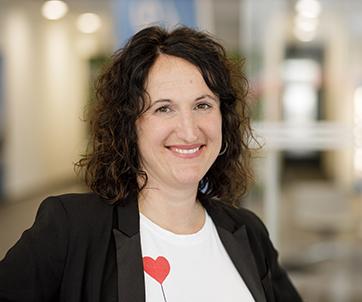ENGIE Refrigeration concentrates production of CO2 high-temperature heat pumps at head office in Lindau
ENGIE Refrigeration GmbH is reorganising its heat pump division. From now on, the refrigeration and heating specialist will produce all the CO2 high- temperature heat pumps in its portfolio at its head office in Lindau on Lake Constance. In the course of this process, the existing production site in Ottendorf-Okrilla near Dresden will be shut down.
ENGIE Refrigeration acquired the site in July 2018 from the insolvency assets of Hafner-Muschler Kälte- und Klimatechnik. ‘We have been producing chillers in Lindau for customers around the world for many years. Our employees have extensive experience in the production of machines with a high performance range, and will now apply this expertise to the production of our CO2 high-temperature heat pumps,’ says Jochen Hornung, CEO at ENGIE Refrigeration. ENGIE Refrigeration will now use its state-of-the-art plant and the logistics network established in Lindau to sell its heat pumps as well, thereby raising synergies and further increasing efficiency in its production and distribution processes. With this decision, ENGIE Refrigeration has clearly achieved its strategic objective of adapting the high production standards of its entire product portfolio to its CO2 high-temperature heat pumps and thereby offer customers the best possible refrigeration and heating solutions.
Heat pump division to be expanded
The CO2 high-temperature heat pumps are an important component of the product and service portfolio at ENGIE Refrigeration. They can reach effective temperatures of up to 110 degrees Celsius, and are therefore used, for example, in the field of heating, in drying technology, and in the provision of heat in communal and industrial heating networks. The heat pumps use the natural refrigerant CO2, which has the technical name R744. It is assigned to safety group A1 for its low toxicity and low level of flammability, which means that flames do not spread, and is inexpensive to procure. In addition, it has a GWP (global warming potential) value of just 1, and thus far lower effects on the earth’s atmosphere than traditional refrigerants. When used in heat pumps, it contributes to the mission of ‘Zero Carbon Transition as a Service’, which the French ENGIE Group, the parent company of ENGIE Refrigeration, has set itself. To this effect, ENGIE Refrigeration plans to further expand its heat pump division at its site in Lindau on Lake Constance over the coming years, as Jochen Hornung explains: ‘We will overhaul the existing thermeco2 heat pumps over the course of 2020 and align them even further with current and future market requirements.’

ENGIE Refrigeration GmbH